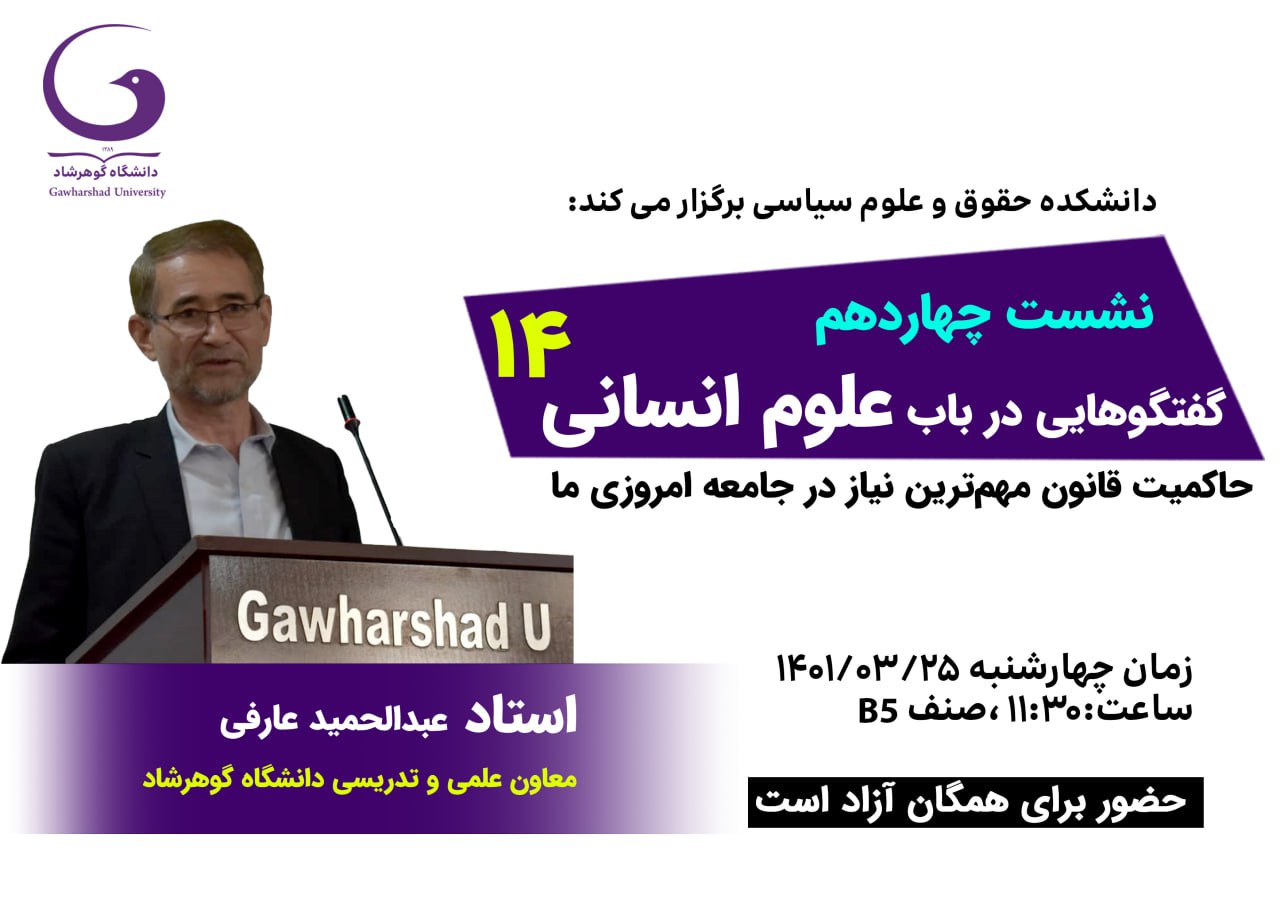Conversations on humanities began with the initiative of the Faculty of Law and Political Science at Goharshad University. These sessions, which aim to enhance the scientific capacity of students, hold discussions on important social, economic, legal, and political topics. In one of these sessions, Professor Abdolhamid Arefi, the academic and teaching deputy of Goharshad University, gave a lecture on the rule of law. He stated that the rule of law ensures permanent security, stability, and order in society. In other words, in societies where law and legalism prevail, all disputes between citizens and legal entities are resolved through the law, and solutions to all conflicts are sought in the country's applicable laws. Everyone obeys the laws and respects them without personal interests or preferences. In such a society, it can be claimed that sovereignty belongs to the law because there is no will above the law in rule-of-law societies, and no will beyond the law is conceivable. In any society, rulers must also consider themselves bound by obedience to the law. On the other hand, laws are enacted in order to meet legitimate demands and legal desires of citizens. In this way, justice will be established in the best possible manner. That is why it is emphasized that all public freedoms and individual and social rights in society should be enshrined in laws and specifically reflected in constitutional laws of countries. Of course, it should also be noted that for the rule of law to exist, a powerful executive branch that is independent and competent in matters related to laws is required; individuals who possess qualifications and responsibilities derived from the law itself. In such a society, it is laws that guarantee protection and preservation of people's rights and freedoms equally for everyone. Therefore, with the existence of laws and their governance in countries, there should be no concern for anyone about their rights being violated or lost.
